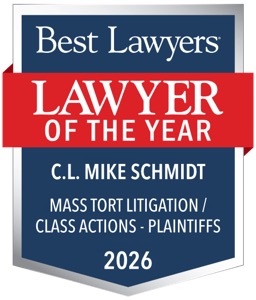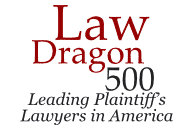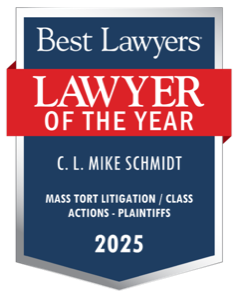- Civil Trial Law Specialist,
- Personal Injury Trial Law Specialist by the Texas Board of Legal Specialization and
- Civil Trial Specialist by the National Board of Trial Advocacy.
About C.L. Mike Schmidt
Certifications
- Civil Trial Law Specialist
- Personal Injury Trial Law Specialist by the Texas Board of Legal Specialization and
- Civil Trial Specialist by the National Board of Trial Advocacy
- Fellow of American College of Trial Lawyers
- Member of the International Academy of Trial Lawyers
- Member of the International Society of Barristers
- Former National Membership Chairman and a Diplomate of the American Board of Trial Advocates
- Listed for several years in The Best Lawyers in America,
- Listed as One of the Best Lawyers in Dallas by D Magazine,
- Listed in Who’s Who in Law by the Dallas Business Journal
- Member of the Million Dollar Advocates Forum
- Featured on the Learning Channel about a wrongful death case in Texas entitled The Magic Bullet
- Board President of the Millicent M. Rogers Museum in Taos, New Mexico



















Free Confidential Case Evaluation
See All Of C.L. Mike Schmidt's Articles

PremierZEN Lawsuit – How to Bring a Claim
Yolo Studio is recalling certain PremierZEN male sexual enhancement dietary supplements which may be contaminated with a drug that could lower the user's blood pressure to dangerous levels which could be life-threatening.

Food Poisoning Lawsuit
The food poisoning lawyers at Schmidt & Clark, LLP are dedicated to representing victims of food poisoning throughout the entire United States. Our contaminated food lawyers have gained a reputation for success. If you or a loved one were the...

STAR Ankle Replacement Lawsuit - How Much Can I Sue For
The Scandinavian Total Ankle Replacement device (STAR Ankle) has been linked to hundreds of reports of premature fracturing, some as early as 3 to 4 years after implantation. "Fracture of the plastic component of the STAR Ankle may lead to...

Walmart Glucosamine Lawsuit – How to Bring a Claim
A recent class action lawsuit alleges that Walmart’s Spring Valley glucosamine supplements are falsely advertised as containing glucosamine sulfate when they actually contain a different product, glucosamine hydrochloride.

Adam’s Secret Recall – How to File a Claim
Adamssecret.co is recalling certain lots of Adam’s Secret Extra Strength capsules which may be contaminated with undeclared sildenafil and/or tadalafil, drugs used to treat erectile dysfunction (ED) in a family of medications known as phosphodiesterase (PDE-5) inhibitors.

Log Splitter Lawsuit – How to Bring a Claim
Our lawyers are reviewing lawsuits for people who were injured in accidents involving recalled log splitter machines.

Yohimbe Lawsuit – How to File a Lawsuit
Men looking for a "natural" cure for erectile dysfunction (ED) have turned to dietary supplements that contain the bark of an African tree called yohimbe; however, this product has recently been linked to serious side effects including high blood pressure,...

Grenade Thermo Detonator Lawsuit – A Legal Guide
A class action lawsuit has been filed against GNC by a man alleging that the company's popular workout supplement Grenade Thermo Detonator "almost killed him" because it was laced with “amphetamines or an amphetamine type substance.”

Turbo Shred Lawsuit – How to File a Lawsuit
A recent class action lawsuit alleges that GNC's Turbo Shred Advance Fat Burner is marketed as an herbal supplement, but actually contains dangerous amphetamine-like stimulants.

Wood Chipper Lawsuit – How to Bring a Claim
The family of a 38-year-old man who died after falling into a wood chipper at a sawmill in Missouri has filed a lawsuit against the manufacturer of the machine.

Alpha Amino Xtreme Lawsuit – A Legal Guide
Alpha Amino Xtreme, a pre-workout supplement sold at GNC and other vitamin retailers nationwide, contains unapproved ingredients which have been linked to severe cardiovascular injuries including heart attack, stroke, and death.

BCAA Lawsuit – How to Bring a Claim
Recent lawsuits allege that branched-chain amino acid (BCAA) supplements are incapable of building muscle and actually decrease protein synthesis, making them harmful to users.



